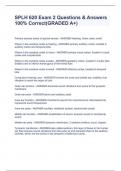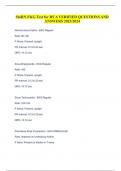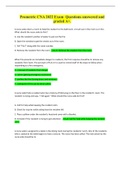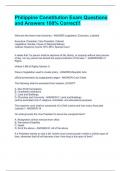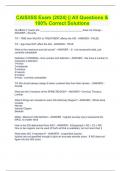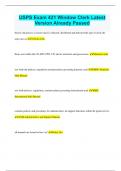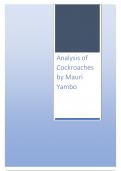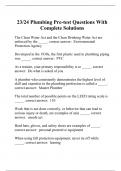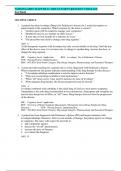Exam (elaborations)
SPLH 620 Exam 2 Questions & Answers 100% Correct(GRADED A+)
- Course
- Institution
Primary sensory areas of special senses - ANSWER-Hearing, vision, taste, smell Where in the cerebral cortex is hearing - ANSWER-primary auditory cortex, located in auditory cortex and temporal lobe Where in the cerebral cortex is vision - ANSWER-primary visual cortex, located in visual cortex...
[Show more]
